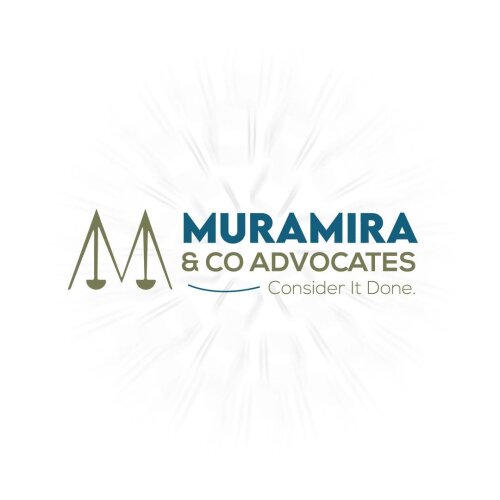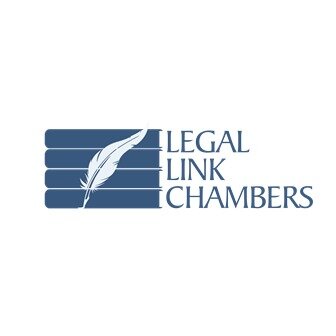Best Corporate Governance Lawyers in Rwanda
Share your needs with us, get contacted by law firms.
Free. Takes 2 min.
Or refine your search by selecting a city:
List of the best lawyers in Rwanda
About Corporate Governance Law in Rwanda
Corporate governance refers to the system of rules, practices, and processes by which companies are directed and controlled. In Rwanda, corporate governance has become a key focus as the country works to attract investment and build a robust, transparent business environment. Rwandan law emphasizes ethical leadership, accountability, and transparency in both public and private sector entities. The Rwanda Governance Board, the Rwanda Development Board, and other governmental institutions promote the adoption of sound corporate governance practices to ensure organizations are run efficiently and responsibly.
Why You May Need a Lawyer
There are many reasons why individuals or businesses may need legal assistance in the field of corporate governance in Rwanda. Some common situations include:
- Establishing a new company and ensuring compliance with corporate governance requirements.
- Advising board members or management on their legal duties and responsibilities.
- Drafting or reviewing company policies, codes of conduct, or shareholder agreements.
- Resolving conflicts between shareholders, directors, or management teams.
- Managing compliance with anti-corruption, anti-money laundering, and other key regulations.
- Participating in mergers, acquisitions, or restructuring exercises.
- Addressing issues of transparency, reporting, or financial disclosure.
- Ensuring the organization is prepared for regulatory audits or inspections.
A lawyer can help clarify complex legal requirements, reduce risk, and protect the rights and interests of all parties involved.
Local Laws Overview
Rwanda’s legal framework for corporate governance is shaped by several important laws and regulations, including:
- Law No. 17/2018 of 13/04/2018 Governing Companies: Sets out rules for establishing, operating, and dissolving companies in Rwanda. It covers directors’ duties, shareholder rights, and disclosure requirements.
- Rwanda Capital Market Authority Rules: Applicable to public companies and listed entities, these regulations set standards for transparency, financial reporting, and board structure.
- National Anti-Corruption Policy and Law: All companies are expected to have measures in place to prevent corruption and promote ethical conduct.
- Corporate Sector Codes of Conduct: Various sectors may have their own codes, especially in banking, insurance, and telecommunications, often overseen by regulatory bodies.
- Rwanda Governance Board Directives: The Board provides guidelines for public interest entities to enhance good governance, accountability, and transparency.
Additionally, companies registered in Rwanda must adhere to special requirements regarding annual general meetings, external audits, record-keeping, and the protection of minority shareholder rights.
Frequently Asked Questions
What is corporate governance and why is it important in Rwanda?
Corporate governance refers to the systems and rules that determine how a company is managed and controlled. In Rwanda, good governance builds trust with investors, ensures transparency, and promotes long-term business growth.
Which law governs companies in Rwanda?
The primary law is Law No. 17/2018 of 13/04/2018 Governing Companies, which outlines company formation, operation, director responsibilities, and shareholder rights.
What are the main responsibilities of company directors under Rwandan law?
Directors must act in good faith, avoid conflicts of interest, ensure accurate record-keeping, and follow all legal requirements pertaining to financial reporting and corporate disclosure.
Are annual general meetings (AGMs) required for Rwandan companies?
Yes. Both private and public companies must hold annual general meetings to discuss important company matters, approve financial statements, and address shareholder concerns.
What are the consequences of failing to comply with corporate governance laws?
Non-compliance can result in fines, penalties, business restrictions, or even the dissolution of the company. Directors and officers could also face personal liability for breaches.
How are minority shareholder rights protected in Rwanda?
Rwandan law provides remedies for minority shareholders, including the right to information, the ability to call meetings, and legal recourse if they face unfair treatment.
Is external auditing compulsory in Rwanda?
Yes, most medium and large companies, especially those in regulated sectors, must appoint external auditors to review and report on their financial statements annually.
Can foreign nationals serve as company directors in Rwanda?
Foreign nationals can serve as directors, subject to meeting certain legal and regulatory requirements, including obtaining appropriate visas and work permits.
What should companies do to prevent corruption and unethical practices?
Companies should implement robust internal controls, establish clear codes of conduct, ensure regular staff training, and comply with Rwanda's Anti-Corruption Law at all times.
Where should disputes over corporate governance be resolved?
Disputes are typically settled through negotiation or mediation, but unresolved issues may be brought before Rwandan courts or arbitration tribunals for a legal determination.
Additional Resources
If you need further information or support regarding corporate governance in Rwanda, consider reaching out to these organizations:
- Rwanda Development Board (RDB): Offers guidance on company registration and business compliance.
- Rwanda Governance Board (RGB): Promotes good governance practices and provides information for public and private entities.
- Rwanda Capital Market Authority (CMA): Oversees listed companies and capital market participants.
- Institute of Certified Public Accountants of Rwanda (ICPAR): Regulates the auditing and accounting profession in Rwanda.
- Rwanda Bar Association: Can assist in finding qualified lawyers specializing in corporate law and governance.
Next Steps
If you require legal assistance with corporate governance in Rwanda:
- Identify your main concerns or the specific matter you need help with, such as company formation, board structure, or dispute resolution.
- Gather all relevant company documents, including incorporation papers, board resolutions, and past meeting minutes.
- Consult a qualified lawyer or legal advisor experienced in Rwandan corporate law and governance. You can contact the Rwanda Bar Association or legal firms for recommendations.
- Discuss your situation thoroughly to understand your rights, obligations, and the best course of action.
- Stay informed about ongoing compliance requirements to protect your business and personal interests.
Taking these steps will help you ensure your business meets all legal requirements and is positioned for sustainable growth and success in Rwanda's business environment.
Lawzana helps you find the best lawyers and law firms in Rwanda through a curated and pre-screened list of qualified legal professionals. Our platform offers rankings and detailed profiles of attorneys and law firms, allowing you to compare based on practice areas, including Corporate Governance, experience, and client feedback.
Each profile includes a description of the firm's areas of practice, client reviews, team members and partners, year of establishment, spoken languages, office locations, contact information, social media presence, and any published articles or resources. Most firms on our platform speak English and are experienced in both local and international legal matters.
Get a quote from top-rated law firms in Rwanda — quickly, securely, and without unnecessary hassle.
Disclaimer:
The information provided on this page is for general informational purposes only and does not constitute legal advice. While we strive to ensure the accuracy and relevance of the content, legal information may change over time, and interpretations of the law can vary. You should always consult with a qualified legal professional for advice specific to your situation.
We disclaim all liability for actions taken or not taken based on the content of this page. If you believe any information is incorrect or outdated, please contact us, and we will review and update it where appropriate.
Browse corporate governance law firms by city in Rwanda
Refine your search by selecting a city.














